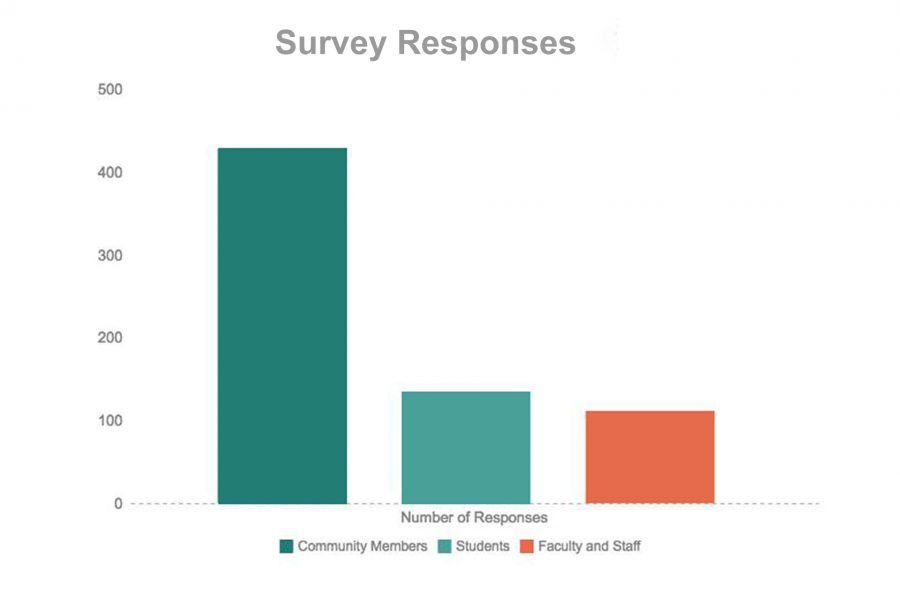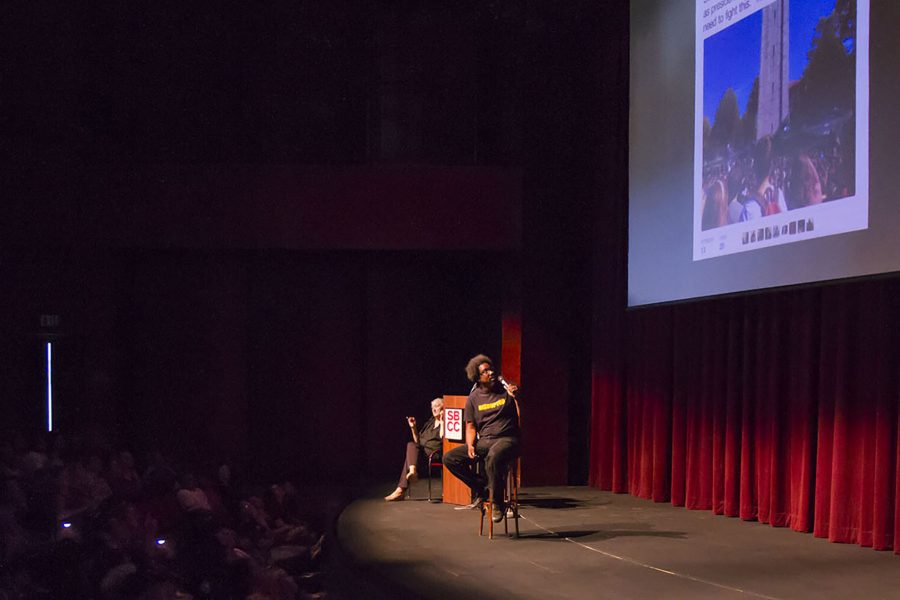As returning students begin to hit the books in the next few weeks, the Board of Trustees looks to be doing much of the same.
Most of last week’s meeting, the second since four new members took office, saw most agenda items tabled for study sessions next month.
At the least, it kept the meeting near it’s scheduled two hours unlike the previous gathering, which lasted close to five hours.
That may sound unproductive, but the board continually expressed an intent to better understand several topics, including whether to pay for a fix to the West Campus clock tower, to bring in an outside legal consultant, and what to do with the ever looming concerns of a far from certain school budget, among other things.
“Obviously, the budget news is not good,” said President-Superintendant Dr. Andreaa Serban when she addressed the board.
She told them the cuts to the school from the State funds could be as severe as $10.2 million annually.
But she started out by saying that cuts may be $3.7 million instead, if voters choose to extend certain tax cuts in June.
Serban, whose followed what passes for developments these days in Sacramento, also said that despite whatever the eventual cuts to base cost funding, the school’s “fiscal and coordinative spirit” would continue.
She added that the days ahead are really what she called “entering the black hole” of the current economic downturn.
That coordinative spirit appeared at the meeting, at least most of the time, as the board’s seven members continually tabled items out of a need to make more informed decisions.
There’s so much to examine in fact, that one of the few items that did see action was one to add a second study session before the next scheduled monthly meeting.
As established, the board only has one such meeting, although others are held for discussions of various topics.
Serban repeated she’d like to see one of them dedicated exclusively to the budget.
So pending a further grasp of the labyrinthine figures on paper, the board chose not to take action on two expenses, one ongoing and one newly proposed.
One expense is the clock tower atop the FéBland Forum.
Fixing it would cost $29,000 and although there’s support to see it done, there’s also concern that the money could go to other, more pressing, matters.
Trustee Joan Livingston described the ailing tower as having a “muffled, sick cow sound” when it goes off and that, in general, “the mood has been ruined” to several functions like Phi Beta Kappa inductions and memorial services in front of the library.
“I love a good clang on the hour,” said Trustee and former college instructor President Dr. Peter Haslund, “but far from my classroom.”
But Trustee Marsha Croninger, who along with Haslund and two others is new to the board, disagrees.
She said that the $29,000 proposed for the project would be better spent on things like paying for tutors and teacher salaries.
“It may be slightly embarrassing to have a clock that doesn’t work,” she argued, but “priority wise, a clock tower is out of date.”
Simply put, Croninger said to “turn it off and save the money for something else.”
Livingston chimed in that the clock was a gift of the late Eli Luria, the same benefactor for whom the library is named, and that it should be preserved.
So the board decided to revisit the matter in one of February’s study sessions.
But the governing body’s “cooperative spirit” lauded by Serban was also challenged.
At issue is whether or not Michael Price, a local attorney who already advises other school boards in the county’s K through 12 systems, should be paid or is even needed.
“In the interest of transparency,” said Livingstone, “it seems like we’ve gotten ahead of ourselves.”
Passed by California lawmakers in 1953, the Ralph M. Brown Act guarantees the public’s right to attend and participate in meetings of local legislative bodies like the publically elected college Board.
Croninger said the board could use some training in the law.
“We’ve had several Brown Act questions come up,” she said.
But Livingston said she feels the college already has adequate legal counsel in-house.
Further, she requested the board “bifurcate” the issue between whether or not to retain him on one hand and if so, what he’d be paid.
Morris Jurkowitz supported Livingston’s request for further review.
“I would like to have the privilege to hear about it in study,” he said.
He also echoed Livingston when he said discussing it would be “in the spirit of cooperation.”
“Rather than having it jammed down our throats,” Jurkowitz said.
















